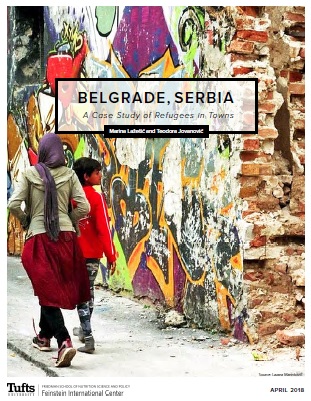The Belgrade case report explores the relationship between the European migrant crisis and political movements in Serbia. It looks at the role of Belgrade as a transit hub for waves of forced migrants, and at the effects of policies to manage migration flows (e.g. counter-smuggling, transit center shut-downs, and restrictions on humanitarian agencies) on the lived experiences of migrants, Serbians, and aid workers who live, work, and pass through the city. The report was conducted and written by two residents of Belgrade who draw from personal experience with displacement from the recent Balkans region conflict.
Belgrade, Serbia: A Case Report of Refugees in Towns

April 2018
ASSOCIATED PROJECT
SUBJECTS
PUBLICATION TYPE
LOCATION
RELATED PUBLICATIONS
This desk study explores how state-owned policies and programs in pastoral areas of the Sudano-Sahel and the Greater Horn of Africa meet pastoralists’ needs and priorities.
•
October 2024
This report outlines an anticipatory insurance product designed to support farmers in the drought-prone regions of Malawi and Zambia.
•
August 2024
The time pressure involved in designing and implementing anticipatory action can discourage the localization of decision-making. Learn more from a cartoon-infused summary of insights.
•
July 2024
Early Warning Systems can reduce deaths and damages caused by extreme weather events, if investors address gaps in communication and planning. Learn more from a cartoon-infused summary of insights.
•
July 2024
This synthesis report reflects upon Phase 1 findings on humanitarian action in pastoral drylands of the Greater Horn and Sudano-Sahel.
•
June 2024
This desk study examines common perceptions of pastoralism among humanitarians and barriers to international humanitarian systems meeting pastoralists’ needs.
•
June 2024






